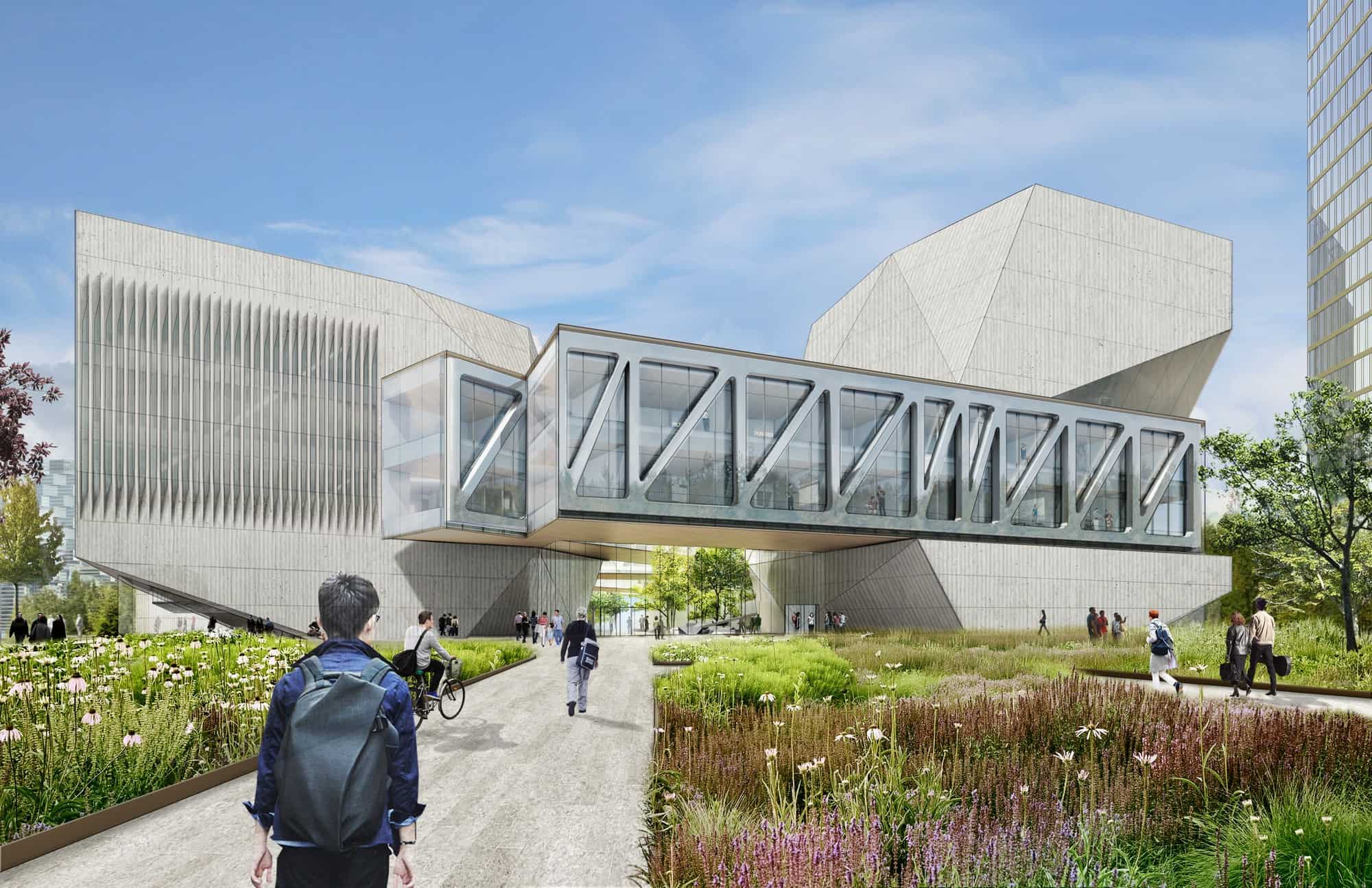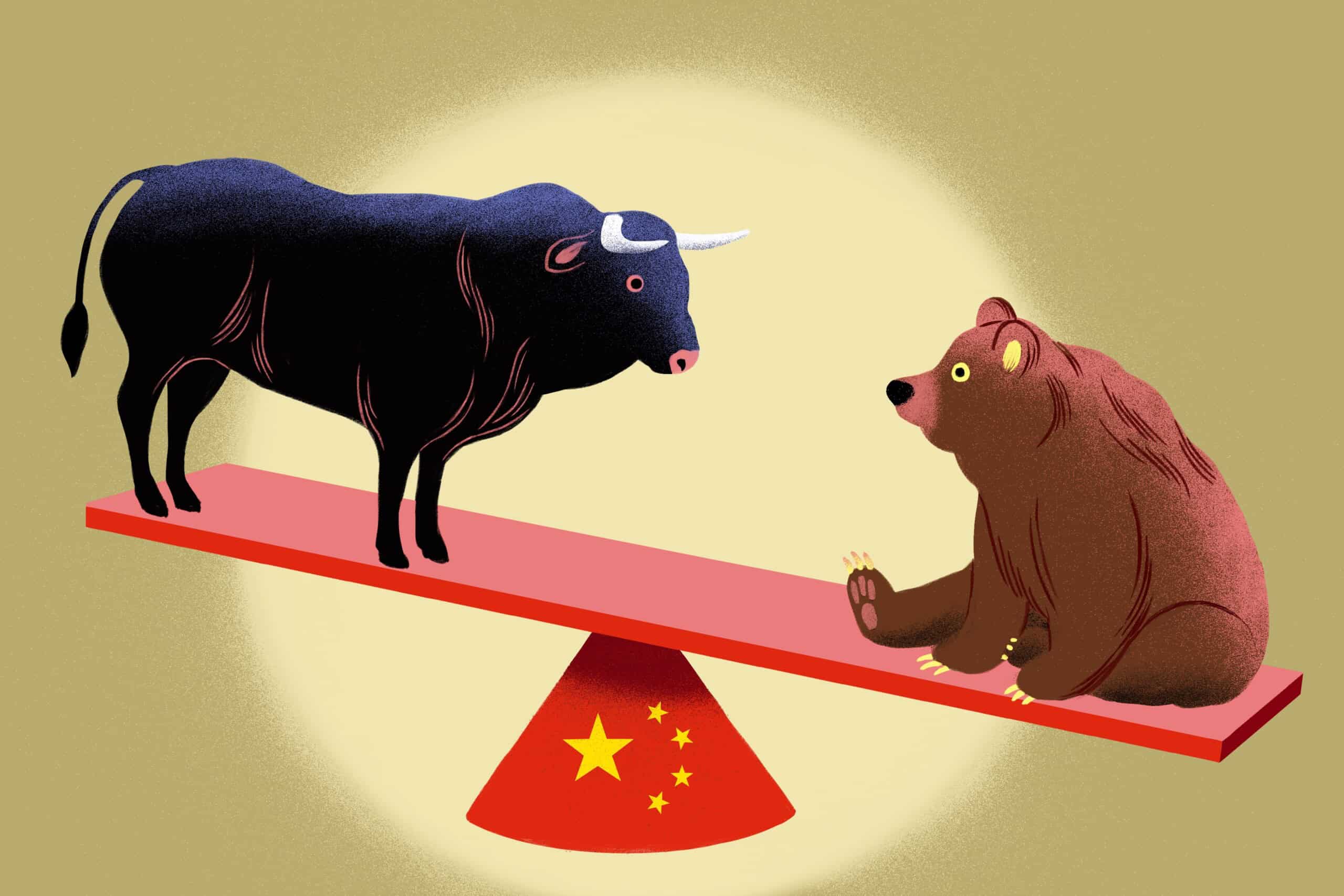
Credit: Diller Scofidio + Renfro
In September 2015, the head of vocal arts at the Juilliard School asked Liv Redpath, a second-year graduate student, if she would learn “Flowing River,” a Chinese folk song, ahead of an important visit. Although she spoke no Chinese, Redpath agreed, and a few weeks later, the soprano performed it in front of Juilliard’s leadership and the guest of honor, famed Chinese folk singer Peng Liyuan. Peng listened to Redpath, gave her some notes, and asked her to sing the song again.
Peng was in town for more than a masterclass though. She was accompanying her husband, Xi Jinping, on his first visit to the United States as China’s leader. On that trip, Xi and President Obama agreed to stop hacking each other’s private businesses, and it seemed that things were looking up for the U.S.-China relationship. Indeed, Peng’s visit to Juilliard was to announce that the performing arts school had received Chinese approval to open a campus in Tianjin for graduate and pre-college programs.
Tianjin, a city 70 miles southeast of Beijing, is not known for its cultural scene, but its officials had a bold idea. They wanted to turn a neighborhood on the edge of Tianjin, about 30 miles from the city center, into a mini-Manhattan, complete with finance and art. The Yujiapu Financial District, as it became known, courted partners from New York and Hollywood, including Lincoln Center and Universal.
But in the years since, as U.S.-China relations soured, U.S. interest in Yujiapu has mostly evaporated. It remains to be seen whether the district will make it as a financial hub, or end up as one of China’s “ghost cities” — the metro areas that are developed from the ground up by government planners that then struggle to attract residents, leaving office towers and apartment blocks empty.
Tianjin Juilliard, however, has persevered. The school’s first cohort of graduate students begin classes on September 17. The school’s local partners spared no expense for the campus, building story-tall atriums, soundproof and acoustically calibrated rooms, and ornate building designs. Juilliard has provided faculty, a curriculum, and has helped find students — a structure that is common for foreign institutions in China, experts say. In January, even as tensions between the U.S. and China were rising, Peng met with Juilliard’s president in Beijing and said she hoped the school would serve as a model for exchanges between China and the U.S., according to state news agency Xinhua.
In recent years, foreign institutions in China have faced a tough landscape. While local governments, which invest heavily in the international schools that come to their districts, have a stake in their success, pressure from the central government has hurt international collaboration. “As soon as President Xi became president, ‘international cooperation and exchange activities,’ as they say in China, were constrained,” said Li Zhang, China Group Leader at the Cross-Border Education Research Team. “The big picture for international education in China is gloomy,” she added.
But Peng’s role in Tianjin Juilliard, Li said, “means it is definitely supported by the [central] government,” allowing it to thrive where others have struggled.
Indeed, in the wake of the Covid-19 pandemic, schools like NYU Shanghai have not been able to get approval for their students to return, and thousands of foreign executives remain unable to get visas to return to China to work. That is not the case, however, for Tianjin Juilliard. Although China’s borders are largely closed to foreigners, the Chinese Consulate in New York has granted Tianjin Juilliard students and faculty visas. Nobody who wants to go to Tianjin has been unable to get government permission, the school said.
Despite the deteriorating geopolitics, Joseph Polisi, who was Juilliard’s president from 1984 to 2017 and is now the school’s chief China officer, said the school’s relationship with China has been smooth since the beginning. The school’s Chinese partners, he said, “haven’t shown any opposition or change of attitude…It has been full speed ahead.”
A decade ago, Juilliard’s leadership decided they wanted to open a second campus to boost the school’s global presence. They were focused on Asia, Polisi said, where there was a huge interest in classical music and few institutes to train future stars. Juilliard considered Japan and South Korea, but “it was in China,” Polisi said, “where we really felt we would be most welcome and perhaps what we were doing would be more appreciated and more needed.” Tianjin officials sold Polisi on becoming a cultural anchor in the new district they were building.

Credit: Amazingloong, Creative Commons
Yujiapu’s future as a cultural center seemed promising. In 2011, Steven Rockefeller’s Rose Rock Group made a deal with Tianjin officials to raise $2 billion and build a skyscraper inspired by Rockefeller Center — called Rose Rock International Financial Center — in the district. That same year, Lincoln Center, home to Juilliard, signed a consulting deal with the district. Tishman Speyer, the New York developer headquartered in Rockefeller Center, was already working on projects in Yujiapu.
As the initial agreement with Juilliard was being finalized, Tianjin officials even visited Hollywood the week of the Academy Awards in 2012 to look for potential partners.
Joan Dangerfield, who consults for entertainment companies in China and founded the Rodney Dangerfield Institute at Los Angeles City College in honor of her late husband, hosted a star-studded party for the Chinese delegation, attended by the likes of Larry King, Peter Fonda, Michael Bolton, and billionaire media mogul Kirk Kerkorian. They were greeted by a Wizard of Oz character, watched an opera act over dinner, and saw a magic show with dessert.
“I remember how sincere and enthusiastic everyone was about the possible partnership” with Juilliard, Dangerfield told The Wire over email.
Yujiapu seemed poised to attract the developers and icons that would give substance to its aspiration to become a financial and cultural hub. But the hype was short lived. For various reasons, Hollywood studios didn’t flock to Tianjin, Rose Rock IFC wasn’t built, and Tishman Speyer let its option lapse on the land where it had planned to build twin office towers. Rose Rock Capital didn’t respond to requests for comment, and Tishman Speyer declined to comment.
As deals fell through, Yujiapu faced other challenges. In 2015, explosions at the nearby Port of Tianjin sent fireballs through the sky, producing shockwaves equivalent to a near magnitude 3 earthquake and leading to fears of environmental contamination in the area. An official report found that 800 tons of ammonium nitrate were involved in the blast and at least 165 had died. (A similar explosion in Beirut this August engulfed approximately 2,750 tons of ammonium nitrate and killed at least 190.)
Yujiapu, China’s Manhattan, was looking increasingly abandoned: vacancy rates were high, malls sat empty, and skyscrapers went unfinished.
But as Tianjin Juilliard prepares for its big opening, Polisi says the city is still vibrant — mini Manhattan or not. On a trip to Tianjin earlier this year, before the pandemic hit, he recalled, “every time we were in Yujiapu, we were stuck in a traffic jam. There was so much activity going on. It’s moving forward.”
Juilliard, he added, views its Tianjin campus as a long-term investment, with results only discernible in 20 years. In other words, he’s not worried that Juilliard put down roots in the wrong place.
“There were stories about how Yujiapu is not going to happen,” he said, “but in the typical Chinese fashion, it’s happening.”

Eli Binder is a New York-based staff writer for The Wire. He previously worked at The Wall Street Journal, in Hong Kong and Singapore, as an Overseas Press Club Foundation fellow. @ebinder21



